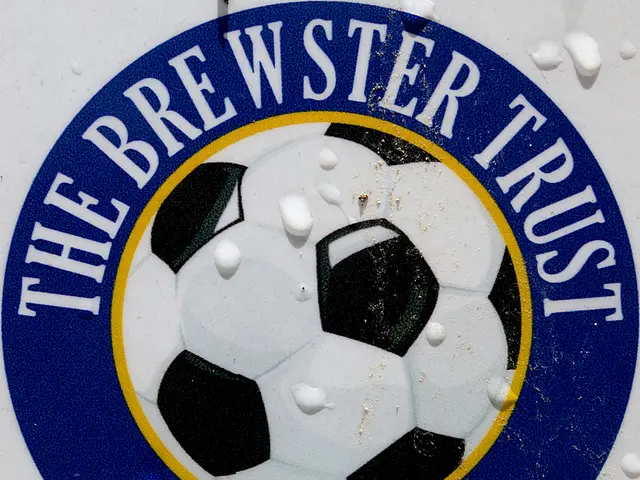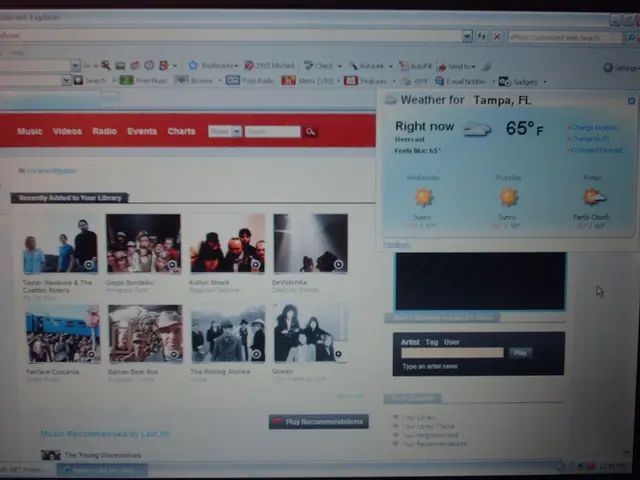Manufacturing growth falters in Worcester due to implemented tariffs
Revitalizing Worcester Manufacturing Amid Uncertain Tariff Landscape
Worcester, Massachusetts, was once renowned for its production of wire in the 1800s. Modern manufacturing in the city today is a far cry from its industrial past, as companies like Multiscale Systems grapple with shifting tariffs and their aftermath.
The city's rail yards still bustle with activity, although freight trains now link to other parts of the country rather than domestic wire production. Amid the hum of modern machinery, Multiscale Systems designs and manufactures custom parts for various industries, such as maple syrup containers and nuclear reactor components.
CEO Jesse Silverberg purchased an old machining business and invested in high-tech equipment to bring precision manufacturing to the old industrial neighborhood. Precision metal, he argues, is the backbone of various industries, but recent tariffs have disrupted the supply chain on which Multiscale relies.
Economist John Brown, who has researched Worcester's manufacturing history, suggests that Multiscale and similar companies are emblematic of the city's future. However, he warns that Trump's tariffs undermine the system they rely on. Tariffs create instability in complex global supply chains, where multiple countries specialize in producing components of sophisticated manufacturing processes.
Multiscale employee Paul Lavalee, with over 40 years of experience in manufacturing, agrees that the public often fails to comprehend the intricacies involved in creating products. "People don't always think of how many things it takes to make a product," he says. "Things are coming from across the world. It wasn't always that way."
Manufacturing engineer Ray Cerro is perfecting a part using a metal 3D printer at the facility. Cerro highlights the challenge of relying on countries like China for specific materials, such as tungsten, which accounts for 80% of the world's production. Multiscale relies on tungsten for various tools, and uncertainty about future tariffs has led some customers to hold off on orders.
The Worcester Regional Chamber of Commerce's CEO, Timothy Murray, explains that the city has attracted new companies, such as biomanufacturing firms, in recent years. However, the ongoing tariff uncertainty has thrown a wrench in the works. "There is a real nervousness and caution among our manufacturers, which is not likely to lead to significant growth and jobs at this juncture until there's better clarity on what the end result is here, which is anybody's guess," Murray says.
To revive Worcester's manufacturing sector, Murray advocates for a reliable supply chain rather than relying solely on tariffs. Rather than creating unnecessary uncertainty, workforce development and authentic collaboration with manufacturers may help reinforce Worcester's manufacturing legacy.
For now, Worcester's manufacturers continue to navigate an increasingly complex and uncertain world, with the lingering effects of tariffs casting a long shadow over the city's industrial future.
[1] Brown, John. "From Wire Drawing to Wraparound: A Century of Change in Worcester Manufacturing." Worcester Polytechnic Institute, 2012.
[2] Timothy J. Murray, "Rebuilding the Capacity of the American National System of Innovation," Worcester Regional Chamber of Commerce, March 2019.
[3] "Manufacturing Outlook: Growth and Jobs in the Age of Tariffs," Federal Reserve Bank of Boston, October 2019.
[1] John Brown's research paper, "From Wire Drawing to Wraparound: A Century of Change in Worcester Manufacturing," discusses the shift in Worcester's manufacturing industry and mentions the role of technology in shaping it.
[2] In a speech titled "Rebuilding the Capacity of the American National System of Innovation," Timothy Murray, CEO of the Worcester Regional Chamber of Commerce, addresses the need for a reliable supply chain and the potential of technology in revitalizing the city's manufacturing sector.








